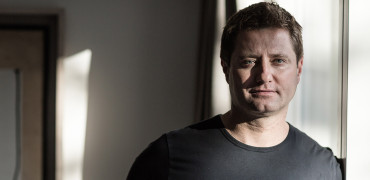It’s that time of year again, where most of us are enjoying the trappings of the festive season and there are still Christmas trees glowing inside homes up and down the land.
I love the Christmas period because most of the construction industry comes to a halt and lots of us are all off at the same time, so for me, it’s a time to relax and share with family and friends.
That means we can all take a holiday without having to spend days preparing to be out of the office or worry about dealing with the tons of emails that have come in while you have been away.
But it is also worth sparing a thought for other sectors that don’t stop for much of a break, so that you can carry on enjoying yours, whether that is in retail, hospitality, logistics and deliveries, or the essential services such as the NHS, Police and Fire Service. Your Christmas wouldn’t be quite so relaxed if all these other people stopped as well.
It’s also worth spending a moment or two taking stock of yourself, where you are in your life and, most importantly, where you want to be.
Break things down into tiny behaviours and put them in the right spot which is after something you are already doing.
The good, the bad and the ugly
Once we get into the break between Christmas Day and New Year’s Eve, I do find myself reflecting on the past year and looking at the ups and downs it has brought me.
Before I go on, it’s worth saying that there have been more ups than downs thankfully, but I did have quite a major challenge this year which got me thinking about life, work and what I want to get out of both.
I’m a Mental Health First Aider at Mitsubishi Electric so I know how important it is to focus on things that are often hidden from others, but my own ‘issues’ began when I realised quite how much I had been keeping hidden from myself!
My downward spiral all came about as I tried to do the simplest of things – make a ‘to do’ list!
I suddenly realised that I had an overwhelming list of things that were all super urgent, vitally important and that the whole world was going to collapse unless I delivered them all on time.
Of course, few of these tasks or projects really were super urgent and, whilst they were important to achieve, nothing was really going to collapse if I didn’t get all of them over the line at the same time.
So, I took a step back from the ‘immediate’ and thought long and hard about what was important to me, to my work, and … most importantly, to my own sanity.
And that’s when I realised something else, it’s always easy to reflect on the bad things in life and forget the good!
Thanks to my family, friends and colleagues, I also realised another important lesson – asking for help is not a weakness – it’s actually a sign of strength as you have realised that you need others to support you.
Little by little, change yourself
There is already plenty of help and support out there and some of it you can do for yourself, especially if you break things down into tiny fragments.
That’s the thought process from B J Fogg in his Health & Habits TEDx talk which you can watch on YouTube, where he talks about how you can change your life by learning ‘Tiny Habits’.
Brian Jeffrey Fogg is a research associate and adjunct professor at Stanford University, who was previously chosen as one of "10 New Gurus You Should Know" by Fortune Magazine. Fogg is the founder and director of the Stanford Behaviour Design Lab, which was formerly known as the Persuasive Tech Lab at Stanford University.
The TEDx talk is around 17 minutes long, and well worth a watch. B J Fogg has developed a formula for tiny habits that makes things completely achievable.
He explains that there are three things that must happen at the same moment to cause a behaviour. First, there needs to be some level of motivation, in other words, you must want that behaviour. Next, you have to have the ability to do it – it can’t be impossible to achieve, and you have to have the environment and space to achieve it. And thirdly, you need a trigger or call to action to make that behaviour occur.
And this is where the tiny habits kick in as you can create your own triggers by adding a small task to something you already do. In this way, you will build a new habit that can improve things or change a bad habit.
Professor Fogg has even come up with a formula to make things even easier “After I …, I will …” or “After I X, I will Y”.
He demonstrates this to the audience with the use of some dental floss not only to show how tying it to an existing habit helps (cleaning your teeth), but also how breaking it down into tiny pieces (flossing one tooth) makes it achievable and habit forming.
Using the formula “After I (existing habit), I will (new tiny behaviour)” can be just about anything. In the TEDx talk, he shows examples from the thousands of people he has worked with in the past year.
These include practical things like “After I come home, I will always hang my keys on the hook” – meaning you always know where to find them!
They can also be things to strengthen you emotionally, such as “After I walk out the door for the day, I will say: Today will be a great day”
Or the one that resonates with me “After my head hits the pillow, I will think of something I am grateful for”.
Look at your life, look at what you want to change and break it down into tiny behaviours and put them in the right spot and the right spot is after something you are already doing.
Then allow it to grow, and in this way, you don’t have to ramp up motivation, you don’t have to draw that much on will power, all you have to do is plan it out and let this natural process emerge.
Professor Fogg is also big on celebrating each small success which is what I want to talk about next.
Success can be habit forming
We all have bad habits, and I realised that one of mine was wearing a mask to hide my inner feelings from everyone around me, so that I gave off the impression of someone gliding through life with ease.
Conventional wisdom claims that forming a habit or breaking a bad habit calls for 21 days of consistent practice and discipline, although this timeframe can vary significantly from person to person and can even take months.
Others pontificate that a good habit can be formed by following three steps known as the “3 Rs” of habit change: Reminder, Routine, and Reward. By following this framework, you can break bad habits and form good ones that will help you achieve long-term success.
I think there is merit in exploring those 3 ‘R’s a bit more, but I’d start by focusing on the last one ‘Reward’.
Celebrate your wins
In her May 2024 blog, award-winning journalist Melissa Russell, wrote a piece titled ‘Why celebrating small wins matter’ for the Harvard Summer School.
She references the Chinese proverb about a journey of 1,000 miles starting with a single step, which helps to break down a seemingly impossible or difficult task (walking 1,000 miles) into the simplest of components (a single step).
There are two direct benefits from this: Firstly, by breaking a task down into much more manageable components you not only make the overall task less scary, but you also clarify your next step in the journey.
Secondly, breaking things down into small, bite-sized tasks makes it much easier to achieve something and succeed.
And this is important because celebrating even small wins helps to stimulate dopamine release in your brain and that reinforces the positive learning experience of success. Change and growth are promoted through positive emotions much more than they are through disciplined practice of ’21 days (or more) of habit’.
Dopamine is an important organic chemical, and its deficiency can lead to tiredness, lack of focus, stress and anxiety, lack of motivation and lack of sleep – all things that are going to make your ability to cope worse.
Anything that gives you pleasure can trigger the release of dopamine and in the workplace that means finding activities that you can celebrate – and this is often easier if it is shared with colleagues, so don’t be shy of talking about your success (and highlighting theirs too) as this can amplify the feel-good effect which reinforces the learning experience and strengthens our sense of connection to those we work with.
Step by step
Keep up your momentum by acknowledging and rewarding yourself for each step forward, and by celebrating these successes.
Whether these are individual steps you’ve taken alone or something you can share with colleagues your ‘reward’ can be something as simple as taking a break, sharing a coffee, or going for a walk.
Always remember that the ‘celebration’ is merely an event, not a destination. It’s just a little pause where you can enjoy a moment of success by looking back before the next step on your 1,000-mile journey.
And that’s where the other two ‘R’s come in. Keep on ‘Reminding’ yourself of your successes, no matter how small, until you do so as a matter of ‘Routine’.
Next time on the blog, I will look at New Year’s resolutions and how to plan for success and learn from failure.
For now, though, here’s hoping you enjoy the rest of the festive period and I wish you strong mental health.
Janvi Patel is Product Marketing Manager




